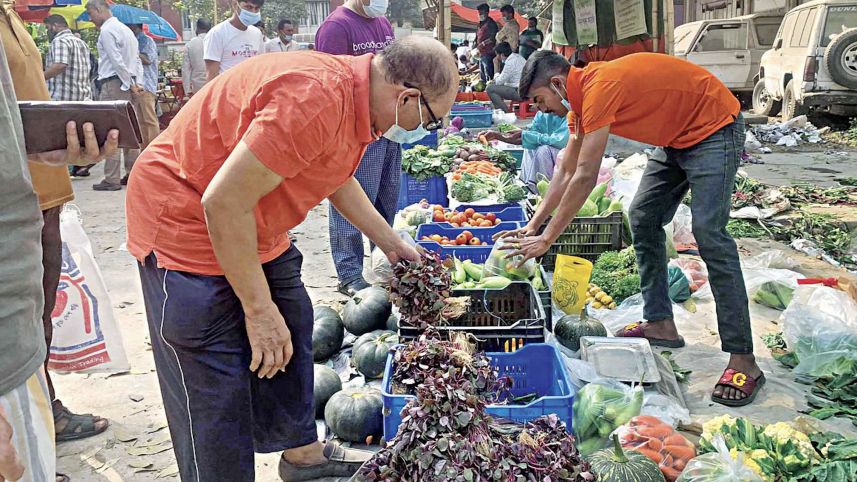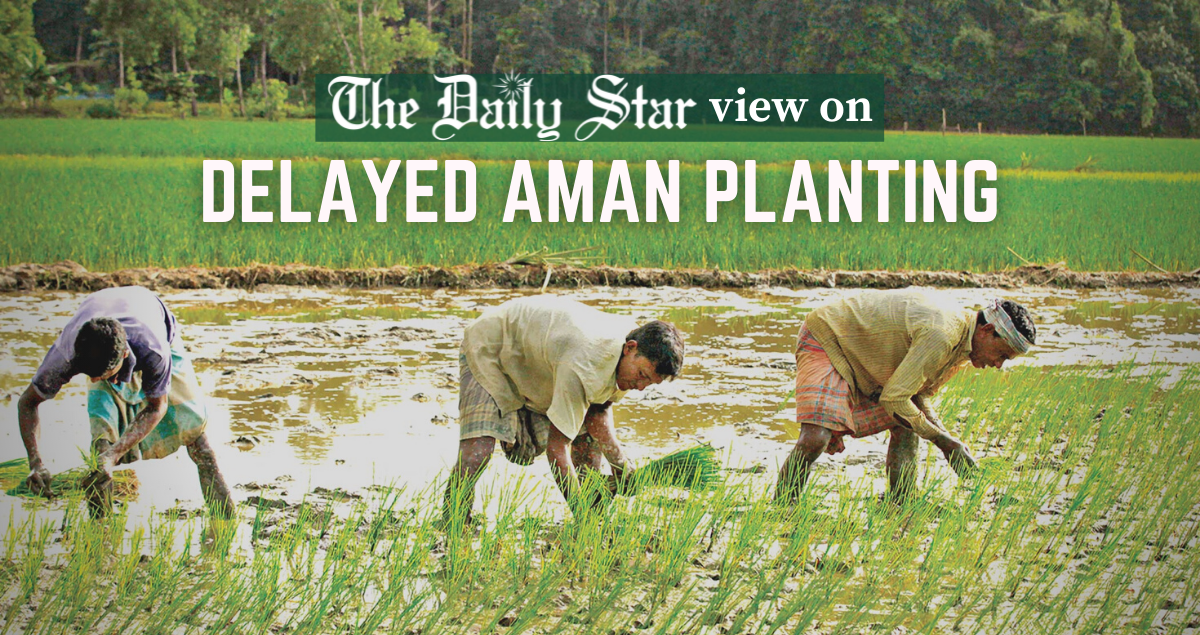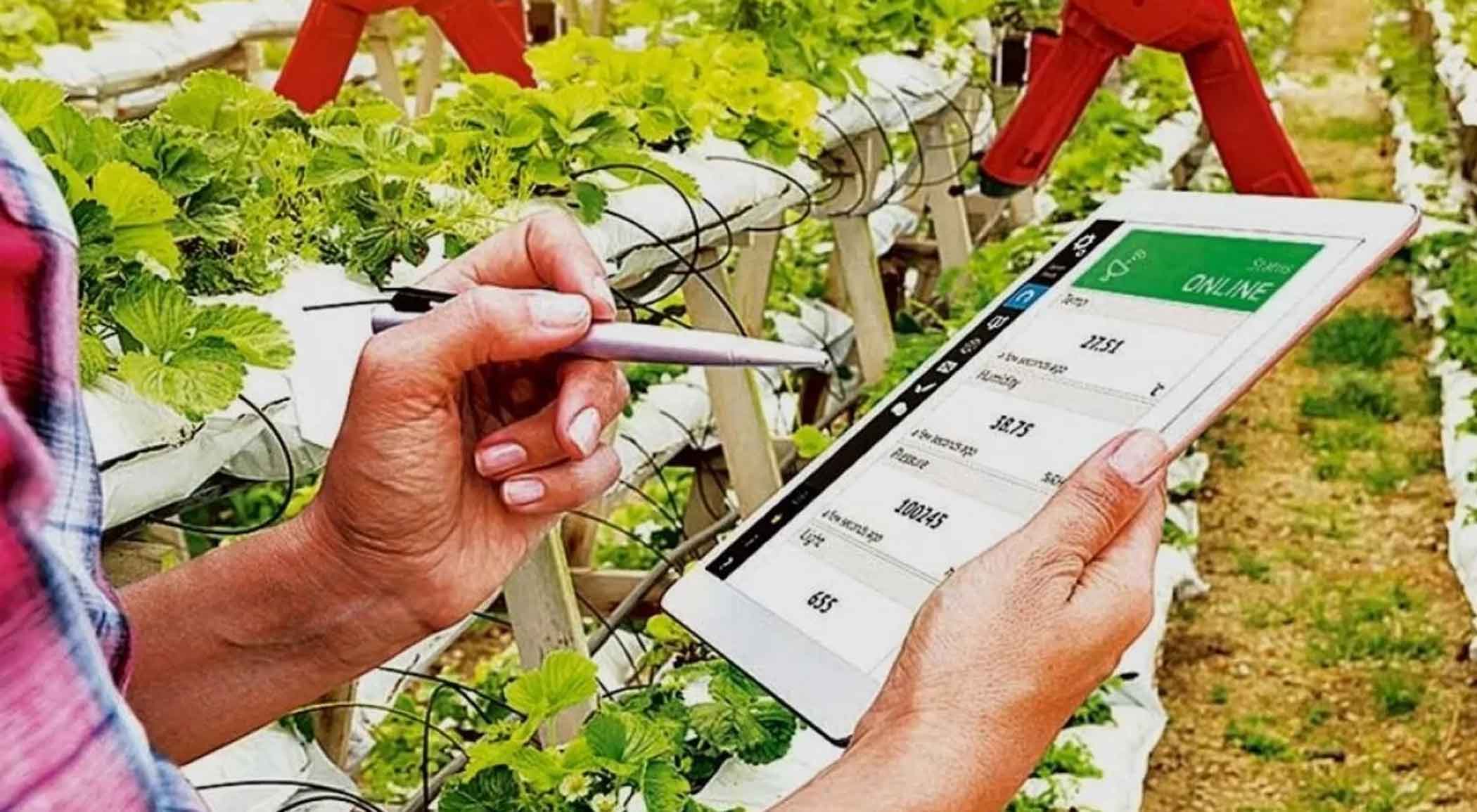How farmers' markets lead to thriving communities

It's always a pleasure to see Bangladesh be the hero in a story. As such, it was a huge delight attending the General Assembly of the World Farmers Markets Coalition in Rome and seeing our country being showcased for connecting farmers and consumers through farmers' markets. This acknowledgement was particularly rewarding for me because I had worked hard to establish local farmers' markets. Following a pilot project, we set up 15 new markets over just 15 weeks in Dhaka North, Dhaka South, Gazipur, and Narayanganj city corporations, bringing the total to 16.
Why is it so important to connect the growers and consumers of food? Many people are afraid to eat local fresh fruits and vegetables for fear of chemical contamination. Being able to visit a market, chat with the farmers, and be assured by a government agency (the Department of Agricultural Extension) that the produce being sold is safe and mostly chemical-free enables people to eat a healthier and more local diet. The closer the food is grown to where we live, the less our consumption contributes to the climate crisis.
Fortunately, most of the farmers, community members, and local officials involved saw the importance of this new connection and worked hard to ensure that it would continue after the funding ended.
Today's children may even think that vegetables come from the superstore, having no idea of the role of farmers in our food supply. Try asking a child how many kinds of soft drinks or chips they can name and then how many kinds of local fruits or vegetables they can think of. It's a tragedy to see people suffering ill health due to poor diets, while losing their connection with the local supply of food.
Without a doubt, establishments like farmers' markets benefit growers, who earn more but also forge a connection to those for whom they grow food. They also help communities, which gain a lively, attractive, and small market that can become a weekly meeting place for the neighbourhood.
So there I was in Rome, in a large auditorium. On a huge screen, a locally-made short video about our farmers' market programme was being played. The audience cheered loudly. Throughout the five days I was there, Bangladesh's success in establishing and operating so many markets was mentioned repeatedly. People from other countries looked up to us as an example to re-establish a connection between growers and consumers of food.
The markets were originally funded by the Food and Agriculture Organization (FAO), with support from the Netherlands embassy. We all know what happens at the end of a project: however much talk there may be of sustainability on the application form, the work tends to stop when the funding runs out. It would have been tragic to see all the effort my colleagues and I put into those markets simply vanish, along with the markets, at the end of our project.
Fortunately, most of the farmers, community members, and local officials involved saw the importance of this new connection and worked hard to ensure that it would continue after the funding ended. One community even increased the frequency of the markets from once to twice a week. To date, while fewer farmers are attending and there are some limits to what is being sold, partly due to the heavy rains, 15 of the 16 markets continue to operate. Farmers enjoy getting to know the buyers, while buyers enjoy the connection with farmers, the freshness and tastiness of the produce, and the knowledge that it is grown safely. Local officials are happy to provide these benefits to their communities.
As the South Asian representative of the World Farmers Markets Coalition Academy, I am thrilled to be able to help spread the knowledge gained in Bangladesh more widely in the region and world. I'm also excited to have the task of helping others throughout the world gain insight into how to connect rural and urban areas through farmers' markets. Lastly, it's a delight for me to visit a local farmers' market each week to choose bright, fresh, tasty leafy greens, fruits, and vegetables – buying directly from the person who grew them.
Naima Akter is project manager at Work for a Better Bangladesh Trust and a member of the board of directors of the World Farmers Markets Coalition.
Views in this article are the author's own.
Follow The Daily Star Opinion on Facebook for the latest opinions, commentaries and analyses by experts and professionals. To contribute your article or letter to The Daily Star Opinion, see our guidelines for submission.
 For all latest news, follow The Daily Star's Google News channel.
For all latest news, follow The Daily Star's Google News channel. 

Comments